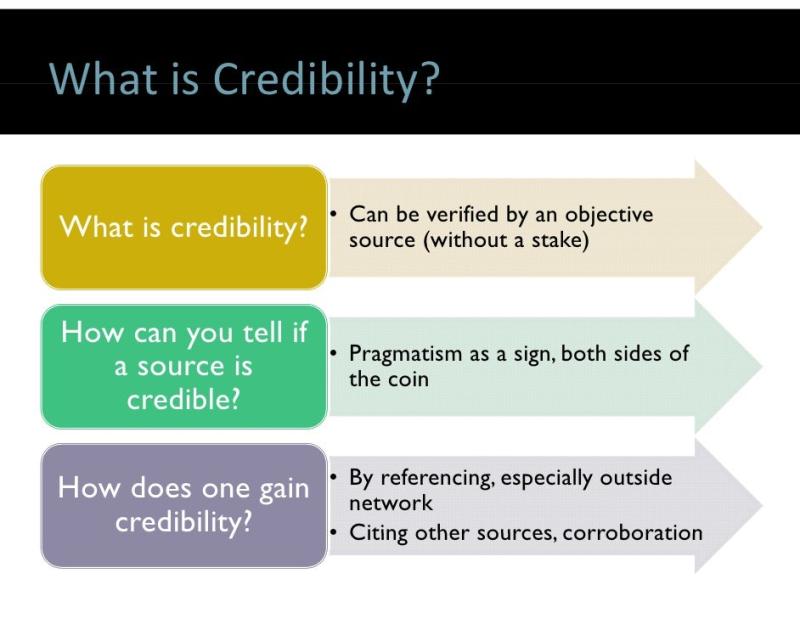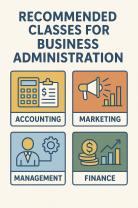What is the credibility of online courses?
The credibility of online courses can vary widely and is influenced by several factors. It's important to assess the educational validity of online courses to ensure that they meet quality standards and provide valuable learning experiences. Here are key factors to consider when evaluating the credibility of online courses:
Accreditation:
- Look for online courses offered by accredited institutions. Accreditation is a process by which educational institutions undergo evaluation to ensure they meet established quality standards. Accredited programs are more likely to provide a credible and recognized credential.
Institutional Reputation:
- Consider the reputation of the institution offering the online course. Established and reputable universities or educational organizations are more likely to provide high-quality courses. Research the institution's history, faculty credentials, and overall standing in the education community.
Instructor Qualifications:
- Assess the qualifications of the instructors delivering the online course. Instructors should have relevant expertise, academic credentials, and professional experience in the subject matter. Check for information about instructors' educational backgrounds and industry experience.
Course Content and Curriculum:
- Evaluate the course content and curriculum. A credible online course should have well-organized and up-to-date content that aligns with industry standards or academic norms. Review the syllabus, course objectives, and the depth of coverage for each topic.
Learning Resources:
- Consider the availability of learning resources. Credible online courses provide a variety of resources such as readings, multimedia content, assessments, and interactive elements. Check for the use of reputable textbooks, articles, and other academic materials.
Interactive and Engaging Elements:
- Assess the presence of interactive and engaging elements in the course. Effective online courses often include discussion forums, collaborative projects, quizzes, and other interactive components that enhance the learning experience.
Technological Infrastructure:
- Consider the technological infrastructure supporting the online course. Reliable platforms with user-friendly interfaces, secure access, and technical support contribute to a positive learning experience. Ensure that the technology used is up-to-date and accessible.
Student Support Services:
- Check for the availability of student support services. Credible online courses provide access to academic advisors, technical support, and other support services to assist students throughout their learning journey.
Reviews and Testimonials:
- Look for reviews and testimonials from previous students. Reviews can provide insights into the quality of the course, the effectiveness of instruction, and the overall student experience. However, be mindful of the source and authenticity of reviews.
Industry Recognition:
- Consider whether the online course has recognition within the industry or field. Courses endorsed by professional organizations or recognized within specific industries may carry additional credibility.
Job Placement or Further Education Opportunities:
- Assess whether the course offers opportunities for job placement, internships, or further education. Credible online courses often have partnerships with industry organizations or provide pathways to advanced degrees.
Transparency:
- Evaluate the transparency of the course. Credible online courses provide clear information about course expectations, grading criteria, and assessment methods. Transparency helps students make informed decisions about their participation.
Cost and Value:
- Consider the cost of the online course in relation to the value it provides. While cost is a factor, it should be weighed against the quality of instruction, resources, and the potential benefits to your education and career.
It's crucial to conduct thorough research and due diligence before enrolling in an online course. Check the credentials of the institution and instructors, review the course materials, and consider feedback from current or past students. Additionally, explore whether the course aligns with your educational and career goals.
Credibility of Online Courses vs. Traditional Courses:
The credibility of online courses compared to traditional classroom-based courses depends on various factors and is no longer a black-and-white issue. Today, many online courses offer a high-quality learning experience and can be just as credible as traditional programs.
1. Factors Determining Credibility:
Several factors contribute to the credibility of an online course or institution:
a. Accreditation: Accreditation by a recognized accrediting agency ensures the institution meets established quality standards for curriculum, faculty, and student services.
b. Faculty Credentials: The qualifications and experience of the instructors significantly impact the learning experience and course credibility.
c. Course Content and Learning Outcomes: The course content should be current, accurate, and aligned with industry standards and learning objectives.
d. Instructional Design and Delivery: The online learning platform, course materials, and instructional methods should be well-designed, engaging, and effective in facilitating learning.
e. Student Support Services: The institution should provide adequate support services, including academic advising, technical assistance, and career guidance.
f. Student Outcomes: The success of graduates and their placement in the workforce are indicators of the effectiveness and credibility of the program.
2. Employer Perception:
Employers' perceptions of online course credentials are changing. As online education becomes increasingly popular and recognized, employers are becoming more accepting of online degrees and certifications.
Several factors influence an employer's evaluation of online credentials:
- Reputation of the institution and program: Employers recognize accredited institutions and programs with established reputations in their field.
- Course content and relevance: The employer will assess the alignment of the course content and skills acquired with their specific needs and job requirements.
- Applicant's skills and experience: Demonstrated skills, relevant work experience, and overall performance hold significant weight in the hiring decision.
- Value-added skills: Employers value graduates who possess additional skills like communication, critical thinking, and problem-solving, regardless of the learning format.
3. Conclusion:
While traditional classroom-based courses still hold value, online courses have gained significant credibility and recognition. By choosing accredited programs from reputable institutions, focusing on learning outcomes and skills development, online education can equip individuals with the necessary knowledge and skills for successful careers.













